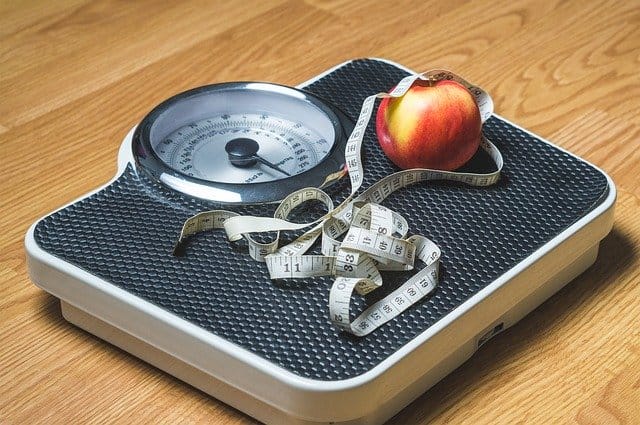
tip the scale
“How often should I weigh myself?” is a common question in my line of business.
It’s a great question because it opens the door to even more questions.
Dang it—you thought you were going to get a straight answer for once….
bio-individuality rules
My first response to the question of stepping on the scale is, “How often do you weigh yourself now?”
For some women, stepping on the scale is part of their daily morning routine; others might not even own a scale (or might just not know where it’s hiding); and of course, there’s a broad spectrum of in-betweens—once a week, once a month, only at their annual physical, whenever.
Once again, bio-individuality rules.
shoulding all over ourselves
The second question is, “How did you decide on that frequency?”
For some, it’s such an ingrained habit that they can’t even remember where it came from, and for others, it’s almost always externally determined: my mother always did it that way, my doctor told me (not) to, my trainer suggested (or forbade) it, my weight-loss program requires (or recommends against) it….
Very, very few will say, “It’s what works for me.”
That’s because it’s much easier to look outside of ourselves for answers and solutions: “Just tell me what to do/think/eat/wear, and I’ll do it. I don’t have the time to think about stuff like this: I just need the silver bullet to fix my problem.”
We use the word “should” way too often, and it’s usually an external “should”—whether it’s actually been said to us or whether we just assumed it based on our own BS. (That’s “belief system.”) We have, quite honestly, given away our agency. Again.
the definition of insanity
The third question is, “And how is that working for you?”
Quite honestly, if the client has come to me for help with a weight loss journey, it generally isn’t working so well.
And whether you ascribe the quote to Einstein or to AA, the definition of insanity is doing the same thing again and again and expecting different results.
Too often, stepping on the scale leads to a downward spiral of negativity and self-judgment.
Or it can lead to massive confusion: What? I was so good yesterday, and I’m up 2 pounds?”
News flash: our weight fluctuates daily/weekly/monthly/seasonally, more so for women than men. And if we are still in our childbearing years, it can fluctuate a lot based on the phase of our cycle. (Add that to a list of injustices if you’re keeping score.)
More injustice: you may find that as you get more fit, you actually gain weight—and you feel stronger, and your clothes fit better, and you’re more comfortable in your body! Sometimes it’s more about redistributing weight than losing it.
Another news flash: in my own experience, what I did yesterday has almost nothing to do with my weight today unless it involves massive amounts of sodium, which promotes water retention. What I did (way too much sugar and gluten) and didn’t do (not enough movement) over the holidays is just showing up for me now, almost two weeks later. This year the pounds came back again—and brought their friends!
If you are weighing yourself, try to look at long-term trends rather than short-term fluctuations: is the needle moving in the right direction over months/seasons/years? You may even realize that you might gain a few pounds over the cold months and lose them again in the warmer seasons—isn’t your body miraculous?
what?!?
One of the clearest indications of whether a client will be successful is her willingness to dig deep and get in touch with her innate bodily wisdom.
It’s found in the way she answers the final question: “What would feel right for you?”
The answers vary, and the two extremes are:
- (Said with a scowl) WHAT?!? I came to you for a solution, not for to be asked questions.
- (Said in a choked voice) WHAT?!? I don’t remember the last time somebody asked me what I want….
Sometimes, clients decide to weigh themselves more often; sometimes, they decide to tip the scale (in the British sense, where “to tip” means to throw out).
Some look for other measures, such as fitness, strength, stamina, decreased joint pain, better-fitting clothes….
but weight, there’s more!
Sorry, couldn’t resist. I’m a sucker for a pun.
The very question of what we weigh can be highly problematic, and if you read health news, you may have noticed that weight as a measure of health is being questioned more and more frequently. It really is another externally imposed measure of our lives.
I won’t go so far as to say that there are healthy obese individuals; however, that school of thought seems to be growing … and I’ve yet to be convinced. In my mind, that is rather like changing garment sizing in order to accept that, well, we are a really overweight nation. (Feel free to disagree with me—respectfully, please.)
My point is that most clients come to me to “fix” their food choices—and more often than not, as my tagline says, “It’s the food. And it’s more than the food.”
Out of the 12 sessions I normally work with a client, after session two, we’re rarely talking about how she ideally wants to eat/what she ideally wants to weigh—we’re talking about where that ideal came from and what else is nourishing her (or not).
make the connection
Health coaching is often more about exploring how our relationship to food got dysfunctional than about what we believe will “fix” our weight. Because maybe we’re not even broken to begin with? And that’s a topic for another day!
On a health journey? I encourage you to start asking these questions about any of your food and lifestyle choices:
- What are you doing now?
- Why are you doing it? (The minute you hear the word “should,” check yourself—and where it came from.)
- How is this working for you? (Great? Keep doing it, being sure to check in with yourself regularly rather than assuming this is the answer for the rest of your life. Awful? Find a new way.)
- What would feel right for you—right now?
Leave a comment or send me an email with your responses to these questions about your relationship with the scale.
Need help on the journey? There’s a health coach for that! I currently have room for two more 1:1 clients: your first step is to sign up to tell me YOURstory—it’s like history, but yours.



